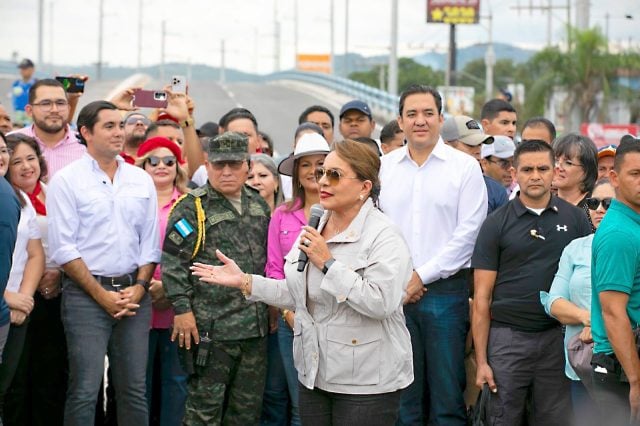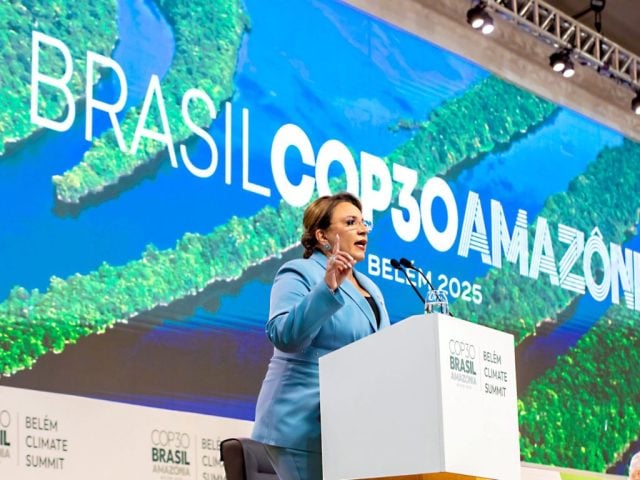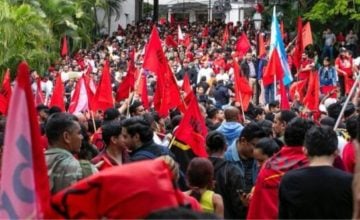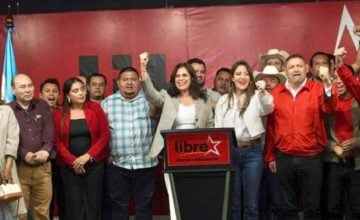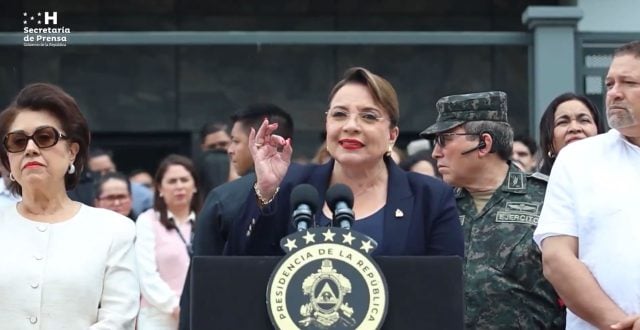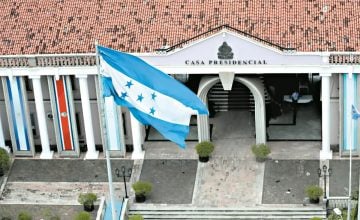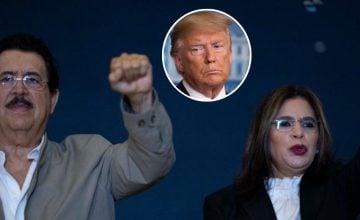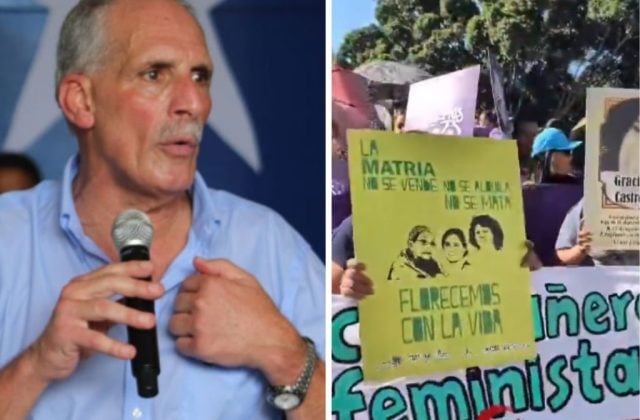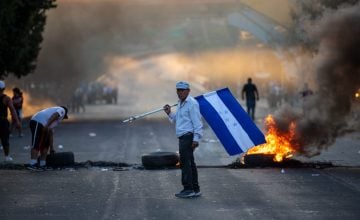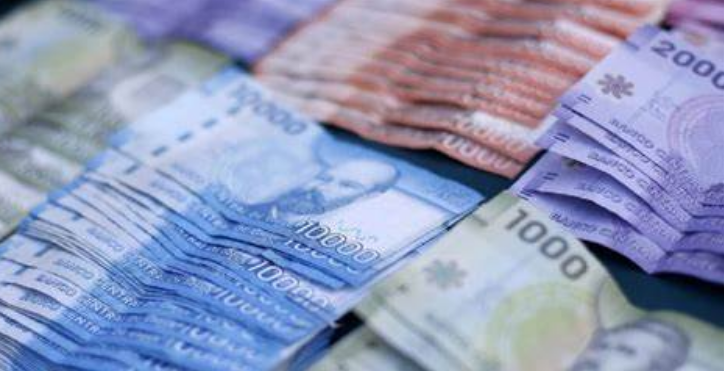Original article: «La mayor inversión pública en la historia de Honduras»: Destacan logros del Gobierno de la Presidenta Xiomara Castro
Honduran Government Highlights Achievements Under President Xiomara Castro, Marking Historic Public Investment
President Xiomara Castro took office on January 27, 2022, in front of a large crowd at the National Stadium in Tegucigalpa, making history as the first woman to lead Honduras.
Her inauguration signified the beginning of a new chapter in the country’s democratic history, grounded in transparency, social justice, and the dignity of the people.
As the country approaches a new electoral process, the Honduran government is proudly highlighting key advancements made during her tenure, including achieving the «largest public investment in Honduras’ history».
Here, we outline some of the notable achievements of President Xiomara Castro’s administration:
ECONOMY AND FISCAL TRANSPARENCY
Reduction of Public Debt: The government significantly reduced national public debt, strengthening the country’s fiscal sustainability.
Lowering Poverty Rates: Social policies were implemented to help decrease poverty levels in Honduras.
Rescue of the Treasury Single Account: The treasury’s single account was safeguarded to ensure transparent accountability for public funds, eliminating hundreds of trusts that dispersed state resources and complicated oversight.
SOLIDARITY NETWORK
Financial Inclusion: The administration established 1,637 rural savings banks in prioritized communities to promote financial inclusion for women, producers, and small entrepreneurs.
Social Bonds: Various direct support bonds were launched:
- Rosa Bond: for women
- Centenary Bond: for older adults
- United Bond: for organized women’s groups
- Hope Bond: for vulnerable families
- Climate Relief Bond: for families affected by natural disasters
Solidarity Scholarships: Solidarity scholarships were introduced for university and secondary school students, ensuring access to higher education and reducing dropout rates.
Food Security: Community silos and technical assistance were provided to small producers to enhance food security and minimize post-harvest losses in rural areas, aiming to preserve essential grains and improve community productivity.
HEALTH
Hospital Infrastructure (135 projects): Hospitals are being constructed in regions with the lowest health coverage: Basic Hospital of Ocotepeque, General Hospital of Roatan, Basic Hospital of Salama (Olancho), Specialty Hospital of Choluteca, Materno-Infantil Hospital of Santa Rosa de Copán, Hospital of Santa Barbara, and Emergency Hospital Satuyé in Roatan.
Emergency Services: 68 Emergency Stabilization Centers (CEEM) have been established across various departments, ensuring immediate and timely medical attention in remote communities.
Specialized Care:
- Five neonatal intensive care units were constructed to guarantee specialized care for newborns and reduce infant mortality.
- Five ophthalmology clinics were established in San Pedro Sula, Siguatepeque, Juticalpa, Santa Barbara, and Tegucigalpa as part of the Miracle Operation in collaboration with the Cuban government.
- Oxygen generating plants were built in several hospitals, including Hospital Jose Santos Guardiola in Roatan, Hospital Jose Anibal Murillo Escobar in Yoro, Hospital Santa Teresa in Comayagua, Hospital Mario Catarino Rivas, Regional Hospital Atlántida, and Hospital Puerto Lempira.
Mobile Services: Medical caravans were launched to provide mobile health services to rural communities.
EDUCATION (5,232 projects)
School Feeding Program: School snacks were provided to 1,229,278 students in 20,679 educational centers nationwide, prioritizing schools in rural and vulnerable communities.
Educational Infrastructure: 5,232 educational centers underwent rehabilitation, roofing, painting, and equipping, improving teaching and learning conditions across the country.
Teacher Training: 10 Bilingual Normal Schools were reactivated for teacher training, enhancing educational quality and English teaching in the public system.
Educational Technology: Educational centers were equipped with modern technology, including computers, projectors, and digital resources, promoting interactive learning and integrating technology in public classrooms.
SECURITY
Police Equipment: Patrol vehicles, motorcycles, and armored units were acquired to enhance the National Police’s operational capability and improve incident response.
Police Infrastructure: New police stations and headquarters were built and reconstructed nationwide, including Metropolitan Units in El Progreso, Tela, Olanchito, Las Vegas, and a Data Center in Tegucigalpa, modernizing police facilities and enhancing public services.
Armed Forces: The Armed Forces were equipped with aircraft, vehicles, and modern technology to strengthen national defense and emergency response.
Tourism: The Tourism Police was reinforced with new equipment, uniforms, and vehicles, enhancing security in tourist destinations.
ROADS INFRASTRUCTURE (2,307 KM)
Roads: 1,340 km of roads were rehabilitated and constructed, improving national connectivity and facilitating the transport of agricultural products and essential goods.
Productive Roads: 321 km of productive roads were established to connect rural communities to local markets and strengthen rural economies.
Neighborhood Roads: 646 km of neighborhood roads were built.
Bridges: Nine strategic bridges were constructed and rehabilitated to enhance road connectivity.
Airports: Four national airports were modernized, boosting air connectivity, tourism, and commercial logistics in the country.
Machinery: Heavy machinery was acquired to support paving and disaster mitigation projects.
CUSTOMS
Customs and border points were modernized, streamlining control processes, foreign trade, and the secure transit of goods. Additionally, the Palmerola cargo terminal was established, enhancing national logistics and positioning Honduras as a regional transport and export hub.
ELECTRICITY NETWORK
Generation (21 projects): 21 national power generation projects incorporating hydroelectric, solar, thermal, and wind sources were developed to diversify the country’s energy matrix.
Distribution and Transmission: 104 electricity distribution projects were executed, and 28 transmission projects were expanded to strengthen the national grid and ensure efficient supply.
Rural Electrification (458 communities): 458 rural communities were electrified for the first time, bringing electricity to countless homes and schools across the country.
Solar Energy: New solar parks and hybrid generation projects were constructed in various regions of the country, expanding national energy capacity.
ENVIRONMENT
Wildfire Response: National response capabilities for forest fires were strengthened through the acquisition of specialized equipment and machinery for environmental protection brigades, enhancing prevention, control, and mitigation efforts.
Environmental Battalions: Military environmental battalions dedicated to protecting the country’s forests and natural resources were established, carrying out ongoing reforestation operations and combatting illegal logging and burning.
AGRICULTURAL SECTOR
Technological Bond: The Productive Technological Bond was provided to thousands of small and medium farmers, ensuring supplies, improved seeds, and tools to boost national production.
Agriforests: Agriforests were created in various regions of the country, large nurseries aimed at producing millions of plants for reforestation and crop renewal.
Agribusiness Infrastructure: Local processing infrastructure was strengthened through the rehabilitation and equipping of processing facilities, collection centers, and agro-industrial transformation plants.
Training: Agricultural schools were established and enhanced in different areas of the country, providing technical training to rural youth on sustainable management and modern production.
CULTURE AND SPORTS
Sports Infrastructure: 90 sports courts were upgraded nationwide, revitalizing spaces for community sports and recreation. Rehabilitation and remodeling work was undertaken in four national and regional stadiums.
Cultural Heritage: The restoration of theaters, museums, and historical parks helped recover the cultural heritage and public meeting spaces.
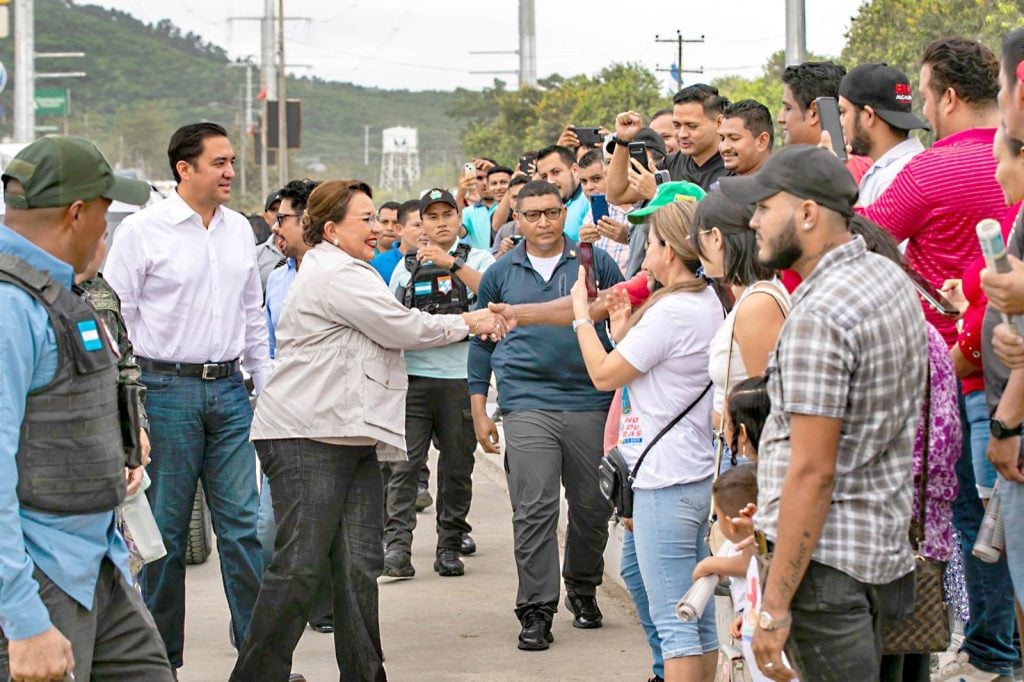
El Ciudadano
